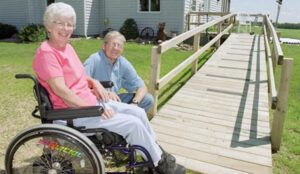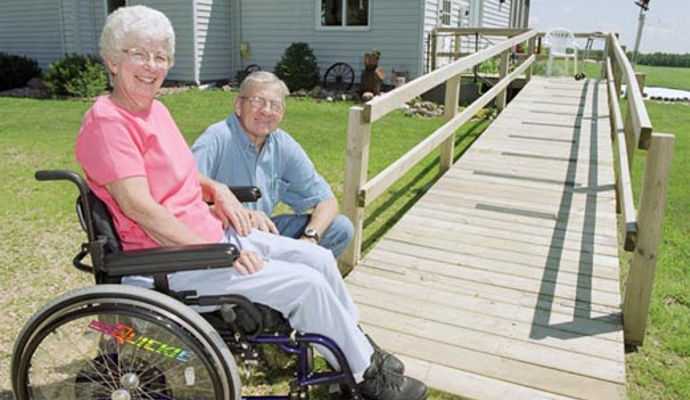Caring for those with disabilities can be a grueling, draining job; but it can also be immensely rewarding.
No matter who provides or receives care, everyone deserves respect and dignity. Here are some tips for taking excellent care of disabled loved ones in a respectful way.
Be Patient Disability Services in Melbourne Care
Caring for those with disabilities presents its own set of difficulties. From communicating with those who are deaf and blind to navigating hospital hallways and managing daily lives, providing assistance requires extra patience on your part.
When providing care to a disabled patient, it is essential to treat them with respect and dignity. These individuals want to be recognized as unique individuals and often respond well to genuine human contact.
To provide top-notch care for severely disabled patients, it’s essential to follow some basic guidelines. These include knowing their medical history, understanding their disability and getting to know them more intimately. These steps will enable you to provide exceptional service while earning their trust.
Don’t Feel Sorry
When providing care to disabled individuals, it’s essential to remember that their disabilities do not make them any less human. This is the cornerstone of maintaining a healthy and positive relationship with disabled people.
Many people who are not disabled may struggle to comprehend the emotions experienced by individuals living with a disability. These can include feelings of sadness, anger and frustration.
Disabled people may experience these emotions for various reasons, but it is essential to acknowledge that they are genuine and valid.
These feelings are often due to disabilities and an inability to comprehend what’s going on around them. As such, they may feel helpless in understanding why something occurs or why things remain as they are.
People living with disabilities may fear poverty, believing it will make it hard for them to pay their bills and reduce quality of life.
Don’t Make Decisions For Them
As we age, many of us start to lose some physical capabilities and the capacity for managing finances independently, making decisions regarding health care, or even being independent. This transition can be especially challenging for people living with disabilities.
There are various methods available to support aging adults and their families in achieving independence. One such option is “supported decision-making”, a proven technique for giving disabled individuals the power to make their own choices about healthcare, education, employment opportunities, housing arrangements, and financial matters.
Supported decision-making is an inclusive method to help those living with disabilities live life to the fullest. While not suitable for everyone, supported decision-making offers us an effective way to live independently, with dignity and respect.
Be an Advocate
Advocacy may not be a familiar term to you, but it refers to speaking up and taking action for change. It’s an excellent way to demonstrate your concern and desire to make the world a better place.
Advocates come in many forms. You could be an individual advocate for someone or a legal one.
Depending on the type of advocacy you select, it may require specific skills. For instance, a legal advocate needs to be knowledgeable about disability rights and discrimination laws.
Another type of advocate is a social security advocate. These professionals assist individuals with professionals in applying for benefits under Social Security.melbourne disability services
When advocating for someone with a disability, it’s essential to comprehend their needs and desires.
o assess the safety of the Plastibell method, we conducted a retrospective study on 171 neonates and infants circumcised at Sultan Qaboos University Hospital (SQUH) over an 8-year period. Of those circumcised, 4 experienced major complications (2.3%) while 89 experienced minor ones (4.4%).
Bris Milah Ceremony
The most traditional method to circumcize a baby boy is through the Bris Milah Ceremony, which was first performed by Patriarch Abraham. This important ceremony seals a child into an agreement to live a life enriched with Torah, marriage and good deeds.

Before the actual circumcision, the baby is placed on a special chair to symbolize his aspiration and prayer to grow up in an environment of peace and righteousness. After that, he is handed to the Sandek, who holds him during the circumcision.
After circumcision, a blessing is given and the baby officially receives his Hebrew name and first taste of Manischewitz. The Bris Milah ceremony typically takes place in a synagogue; however, it may also take place at home with parents or grandparents.
Mohel or Mohelet
Mohels, also known as mohalim (Hebrew: mvhl, plural mohelim), are men specially trained to perform the Jewish ritual circumcision of newborn boys. This procedure is an integral part of the brit milah ceremony – a halakhically required ritual that symbolizes God’s covenant with Jews.
On the eighth day of life, the mohel performs the surgical removal of a baby’s foreskin from their penis. This ritual is an important milestone in Jewish life that necessitates skill and knowledge of both halakhic law and Jewish tradition.
Mohelim have traditionally been men who received training from veteran mohels and passed it down through generations. Nowadays, however, both Brit Milah Board of Reform Judaism and Conservative Brit Kodesh at Jewish Theological Seminary offer formal certification programs for mohelet candidates.


